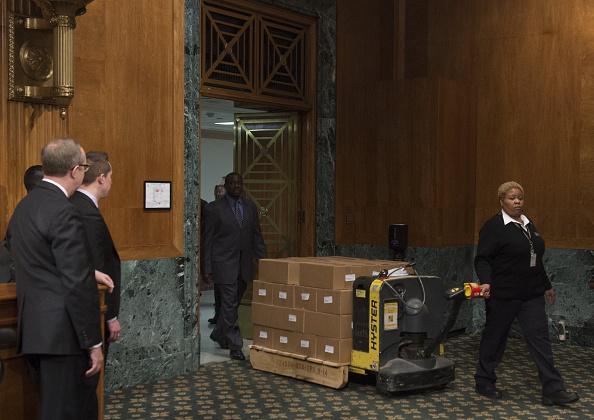Barack Obama has of late spoken about a number of potential tax increases on high earners and corporations that could help pay for programs to address the economic stagnation of poor and middle-class Americans. He’s now laid out the details of those ideas in a proposed fiscal 2016 budget. From the New York Times:
Among those proposals will be a 19 percent minimum tax rate on American corporate profits that are kept overseas. The president will also propose a one-time 14 percent tax rate for companies that bring profits home from overseas … But that “repatriation holiday” would have to be part of a broader overhaul of the business tax code, the budget will stress. The president will reiterate his call for a business income tax overhaul that lowers the corporate tax rate from 35 percent to 28 percent, and 25 percent for manufacturers.
(Here’s an explanation of common overseas corporate tax avoidance maneuvers from New York magazine.)
As the Wall Street Journal has detailed, Obama is also proposing more taxes on inheritances. His spending proposals include his new free community college initiative, $478 billion in infrastructure repairs, and a variety of tax cuts for lower earners. From Politico:
The Obama team believes it will win over the public with $277 billion in “middle-class and pro-work tax cuts” — including a tax credit for working spouses, a tripling of the maximum child-care tax credit to $3,000 and an expansion of the Earned Income Tax Credit to include low-wage workers without children. Senior administration officials say the tax package will help 44 million families, with an average benefit of $600 per household. They argue that Republicans have previously endorsed ideas similar to some of those proposals.
Republicans, of course, control both houses of Congress, so Obama’s ambitious budget is considered an opening move in negotiations that will ultimately produce much less sweeping results. “While little in the White House budget is expected to advance in the GOP-controlled Congress,” writes the Wall Street Journal, “many Republicans’ desire to increase spending for the military and infrastructure keeps alive the possibility of a modest deal later this year.”
